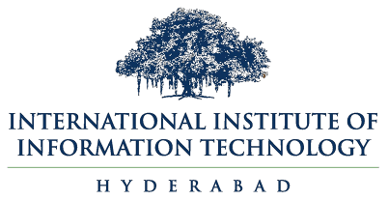Sample Complexity of Black Box work Extraction
Shantanav Chakraborty,Siddhartha Das,Arnab Ghorui,Soumyabrata Hazra,Uttam Singh
Technical Report, arXiv, 2024
@inproceedings{bib_Samp_2024, AUTHOR = {Shantanav Chakraborty, Siddhartha Das, Arnab Ghorui, Soumyabrata Hazra, Uttam Singh}, TITLE = {Sample Complexity of Black Box work Extraction}, BOOKTITLE = {Technical Report}. YEAR = {2024}}
Extracting work from a physical system is one of the cornerstones of quantum thermodynamics. The extractable work, as quantified by ergotropy, necessitates a complete description of the quantum system. This is significantly more challenging when the state of the underlying system is unknown, as quantum tomography is extremely inefficient. In this article, we analyze the number of samples of the unknown state required to extract work. With only a single copy of an unknown state, we prove that extracting any work is nearly impossible. In contrast, when multiple copies are available, we quantify the sample complexity required to estimate extractable work, establishing a scaling relationship that balances the desired accuracy with success probability. Our work develops a sample-efficient protocol to assess the utility of unknown states as quantum batteries and opens avenues for estimating thermodynamic quantities using near-term quantum computers.
Pointer States in the Born-Markov Approximation
Uttam Singh,Adam Sawicki,Jarosław K. Korbicz
Physical Review Letters, PRL, 2024
@inproceedings{bib_Poin_2024, AUTHOR = {Uttam Singh, Adam Sawicki, Jarosław K. Korbicz}, TITLE = {Pointer States in the Born-Markov Approximation}, BOOKTITLE = {Physical Review Letters}. YEAR = {2024}}
Quantum states least affected by interactions with environment play a pivotal role in both foundations and applications of quantum mechanics. Known as pointer states, they surprisingly lacked a systematic description. Working within the Born-Markov approximation, we combine methods of group theory and open quantum systems and derive general conditions describing pointer states. Contrary to common expectations, they are in general different from coherent states. Thus the two notions of being “closest to the classical”—one defined by the uncertainty relations and the other by the interaction with the environment—are in general different. As an example, we study spin-spin and spin-boson models with an arbitrary central spin J.
Quantum Depth in the Random Oracle Model
Atul Singh Arora,Andrea Coladangelo,Matthew Coudron,Alexandru Gheorghiu,Uttam Singh,Hendrik Waldner
ACM Symposium on Theory of Computing, STOC, 2023
Abs | | bib Tex
@inproceedings{bib_Quan_2023, AUTHOR = {Atul Singh Arora, Andrea Coladangelo, Matthew Coudron, Alexandru Gheorghiu, Uttam Singh, Hendrik Waldner}, TITLE = {Quantum Depth in the Random Oracle Model}, BOOKTITLE = {ACM Symposium on Theory of Computing}. YEAR = {2023}}
We give a comprehensive characterisation of the computational power of shallow quantum circuits combined with classical computation. Specifically, for classes of search problems, we show that the following statements hold, relative to a random oracle: (a) BPPQNCBPP ≠ BQP. This refutes Jozsa’s conjecture in the random oracle model. As a result, this gives the first instantiatable separation between the classes by replacing the oracle with a cryptographic hash function, yielding a resolution to one of Aaronson’s ten semi-grand challenges in quantum computing. (b) BPPQNC ⊈ QNCBPP and QNCBPP ⊈ BPPQNC. This shows that there is a subtle interplay between classical computation and shallow quantum computation. In fact, for the second separation, we establish that, for some problems, the ability to perform adaptive measurements in a single shallow quantum circuit, is more useful than the ability to perform polynomially many shallow quantum circuits
Gaussian work extraction from random Gaussian states is nearly impossible
Uttam Singh,Jarosław K. Korbicz,Nicolas J. Cerf
PHYSICAL REVIEW RESEARCH, RRR, 2023
@inproceedings{bib_Gaus_2023, AUTHOR = {Uttam Singh, Jarosław K. Korbicz, Nicolas J. Cerf}, TITLE = {Gaussian work extraction from random Gaussian states is nearly impossible}, BOOKTITLE = {PHYSICAL REVIEW RESEARCH}. YEAR = {2023}}
Quantum thermodynamics can be naturally phrased as a theory of quantum state transformation and energy exchange for small-scale quantum systems undergoing thermodynamical processes, thereby making the resource theoretical approach very well suited. A key resource in thermodynamics is the extractable work, forming the backbone of thermal engines. Therefore it is of interest to characterize quantum states based on their ability to serve as a source of work. From a near-term perspective, quantum optical setups turn out to be ideal test beds for quantum thermodynamics; so it is important to assess work extraction from quantum optical states. Here, we show that Gaussian states are typically useless for Gaussian work extraction. More specifically, by exploiting the “concentration of measure” phenomenon, we prove that the probability that the Gaussian extractable work from a zero-mean energy-bounded multimode random Gaussian state is nonzero is exponentially small. This result can be thought of as an �-no-go theorem for work extraction from Gaussian states under Gaussian unitaries, thereby revealing a fundamental limitation on the quantum thermodynamical usefulness of Gaussian compo













